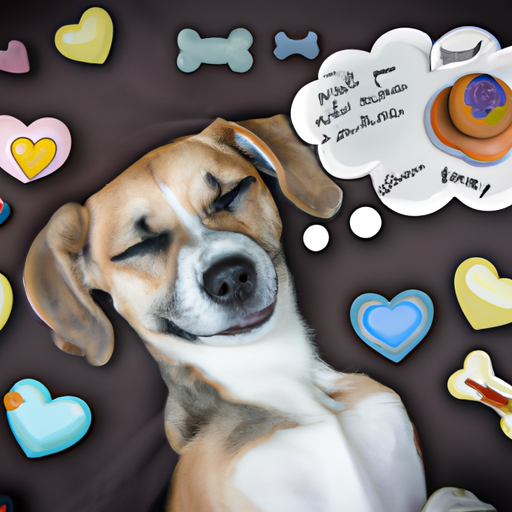As a caregiver to a young puppy, you might find yourself asking the question, “How can I make my puppy feel loved?” It’s a question that plagues every new pet parent as they navigate through the early stages of puppyhood.
Understanding Your Puppy’s Needs
First and foremost, understanding your puppy’s needs is crucial to making them feel loved. Puppies require a lot of time, attention, and patience. They need to be fed, exercised, and trained regularly. They also need ample rest, social interaction, and mental stimulation.
- Food: Puppies grow fast and need to eat 3 to 4 times a day. A balanced diet is essential for their development.
- Exercise: Regular exercise is important for a puppy’s physical health and helps them burn off energy.
- Training: Training teaches your puppy good behavior and helps them understand what’s expected of them.
- Rest: Puppies need a lot of sleep to grow and develop properly. Make sure they have a quiet, comfortable place to rest.
- Social Interaction: Puppies need to interact with other dogs and people to learn social skills.
- Mental Stimulation: Puppies need toys, games, and puzzles to challenge their minds and keep them entertained.
Communicating With Your Puppy
Secondly, learning to communicate with your puppy effectively can greatly enhance the bond you share. Dogs communicate primarily through body language, and understanding this can help you respond to your puppy’s needs more effectively.
Table: Basic Puppy Body Language
| Body Language | What It Means |
|---|---|
| Tail wagging | Happy, excited |
| Ears back, tail tucked | Scared, anxious |
| Growling, showing teeth | Aggressive, threatened |
| Whining, pacing | Nervous, needs attention |
Providing Consistent Training
Thirdly, consistent training is key to making your puppy feel secure and loved. Training helps your puppy understand what’s expected of them and gives them a sense of structure. Use positive reinforcement methods like treats, praise, and play to reward your puppy for good behavior.
- House Training: Start as soon as your puppy comes home.
- Basic Commands: Teach commands like ‘sit’, ‘stay’, ‘come’, ‘down’ and ‘leave it’.
- Socialization: Expose your puppy to different people, animals, and environments.
- Crate Training: Helps with house training and provides a safe space for your puppy.
Showing Affection
Fourthly, showing affection is a simple and effective way to make your puppy feel loved. This can be done through petting, cuddling, and verbal praise. Remember to respect your puppy’s boundaries and not to force affection if they’re not comfortable.
Regular Check-ups
Finally, regular vet check-ups are important for keeping your puppy healthy and happy. Your vet can provide vaccinations, deworming treatments, and advice on diet and exercise.
Frequently Asked Questions
How often should I feed my puppy?
Puppies should be fed 3 to 4 times a day. Remember to adjust the portion sizes according to your puppy’s age, breed, and size.
How much exercise does my puppy need?
The amount of exercise a puppy needs can vary based on their breed, age, and health. Generally, 5 minutes of exercise per month of age up to twice a day is a good rule of thumb.
When should I start training my puppy?
You can start training your puppy as soon as they come home. It’s easier to teach a puppy than to correct behavior in an adult dog.
How can I socialize my puppy?
You can socialize your puppy by exposing them to different people, animals, and environments. This can be done through puppy classes, playdates, and walks in the park.
How often should I take my puppy to the vet?
Puppies should have their first vet visit within the first week of bringing them home. After that, they should have regular check-ups every 3 to 4 weeks until they’re 16 weeks old. After 16 weeks, they should have check-ups every 6 months.
By understanding and responding to your puppy’s needs, communicating effectively, providing consistent training, showing affection, and ensuring regular vet check-ups, you can ensure that your puppy feels loved and secure in their new home.



